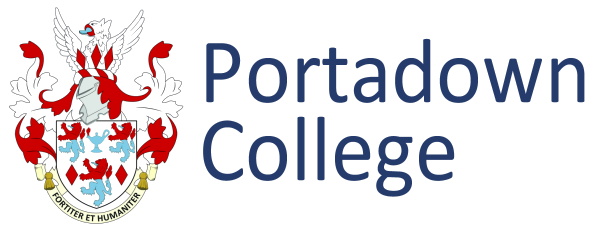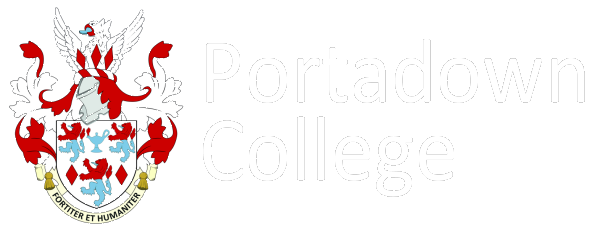Mr D Spence (Head of Department)
Mrs R Crooks
Mrs E Glynn
Mrs C Leeper
Dr J McCavigan
Mrs L Totten
Mrs J Wray
Single Award Science
The Science Department aims to foster a learning environment in which students can develop a good overall knowledge of the subject and be thoroughly prepared for the relevant examinations. We believe that diligence and enjoyment create a fantastic atmosphere for learning to take place.
GCSE Single Award Science is intended for breadth of study rather than depth. It provides useful skills for general A Level study such as working with data, problem solving, investigating methods and drawing conclusions.
It does not adequately prepare for the study of Biology, Chemistry or Physics at A Level.
However, Single Award Science students may continue studying Science beyond GCSE by selecting A Level Life & Health Sciences.
GCSE Single Award Science
Examination Board: CCEA
At Portadown College it is possible to study the following GCSE Science options:
- Biology (9 periods per fortnight)
- Chemistry (9 periods per fortnight)
- Physics (9 periods per fortnight)
- Single Award Science (9 periods per fortnight)
Students can study one, two or all three of the separate Sciences (Biology, Chemistry and Physics) or study Single Award Science only instead. All students are required to study at least one science option.
Students who are interested in pursuing a career in engineering, science teaching, medicine or a medically related area should choose to study all three of the separate Sciences (Biology, Chemistry and Physics) at GCSE level. This will ensure that these students will satisfy the university admissions criteria for medicine, dentistry, veterinary medicine, pharmacy, engineering etc. Prospective students are advised that GCSE Chemistry is required by many universities for ‘non-chemistry’ courses such as Food Science and Dietetics.
Single Award Science can be taken instead of one of the separate sciences above. It is a course incorporating some aspects of Biology, Chemistry and Physics with particular emphasis on applying it to the world around us. It does not cover some of the more demanding areas from the separate Science specifications and involves less Mathematics than those courses.
Single Award Science is for students who do not wish to specialise in one particular area of Science, have limited interest in Science and who do not see themselves taking on any of the separate Science subjects at A Level. It therefore allows students to fulfil the requirement to study one Science subject at GCSE and to meet the criteria of universities that ask for a GCSE in Science, while also leaving students with more options for studying different areas of the curriculum.
Progression to study Science at A Level
Single Award Science allows progression to study Life and Health Sciences at A Level as long as all GCSE Single Award Science units are taken at Higher Tier.
What will I study and how will I be assessed?
| Content | Assessment | Weighting |
| Unit 1 Biology | External Examination (1 hour) | 25% |
| Unit 2 Chemistry | External Examination (1 hour) | 25% |
| Unit 3 Physics | External Examination (1 hour) | 25% |
| Unit 4 Practical Skills | Booklet A (7.5%) Two externally marked pre-release practicals in Year 12.Booklet B (17.5%) External written examination on practical work. (1 hour) | 25% |
Examinations
The examination can be entered at two different tiers:
Higher Tier : Grades A* – D
Foundation Tier : Grades C* – G
It is expected that a large majority of students will enter at Higher Tier.
What can this subject lead to?
This GCSE is intended for breadth of study rather than depth. It provides useful skills for general A Level study such as working with data, problem solving, investigating methods and drawing conclusions.
Students may go on to study Life and Health Sciences at A Level as long as all GCSE Single Award Science units are taken at Higher Tier. However, it does not adequately prepare for the study of Biology, Chemistry or Physics at A Level
No current updates.

